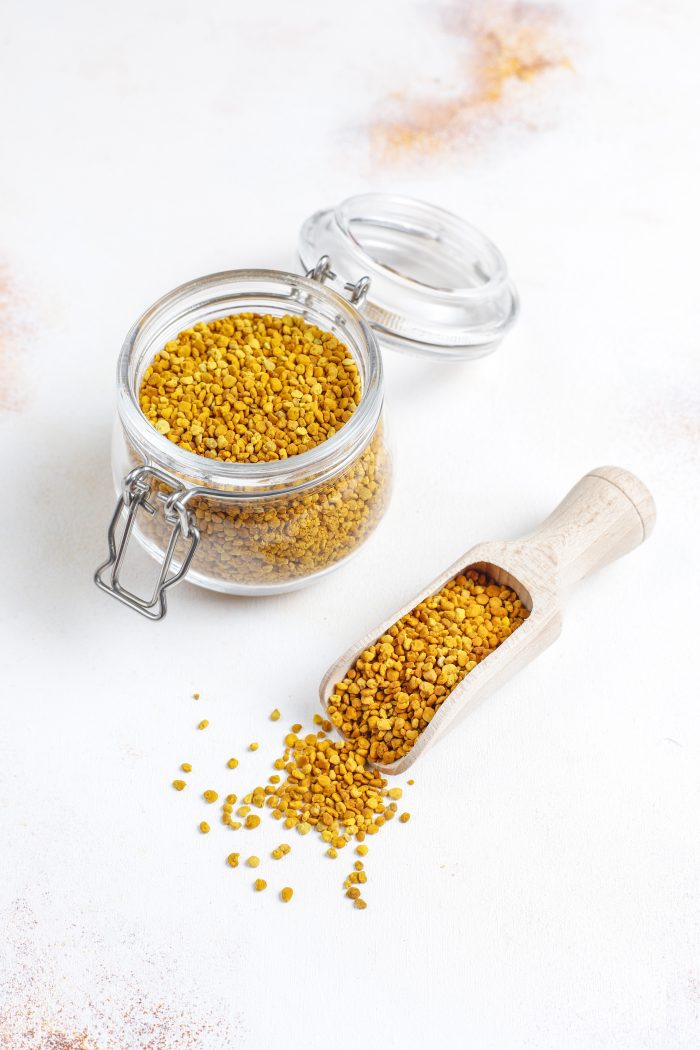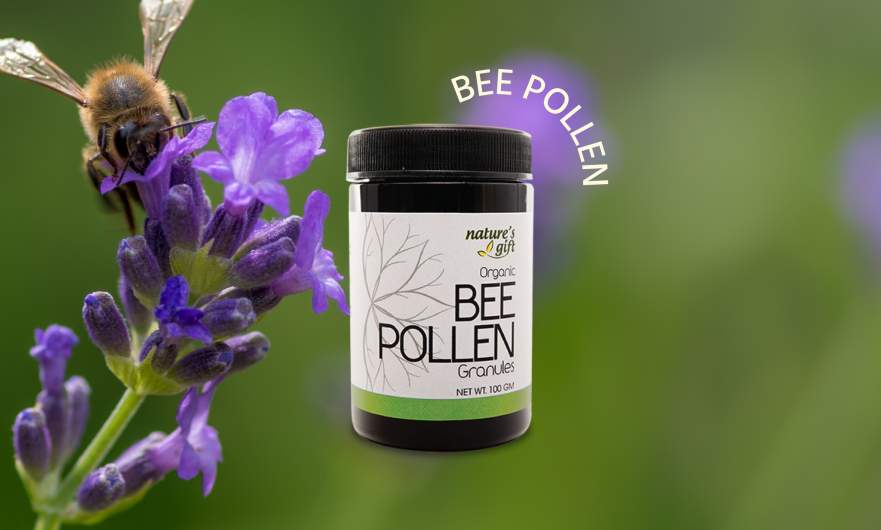Flowering plants make pollen as their primary way to reproduce. When bees are looking for nectar to make honey, they collect pollen and make them into balls, then carry them back to hives and store them in the honeycomb as food for the bee colony.
Bee pollen is a mixture of flower pollen, nectar, enzymes, honey, wax, and bee secretions. It is very nutritious and contains over 250 substances, including vitamins, amino acids, essential fatty acids, enzymes, micronutrients and antioxidants. You can add them to food like yoghurt, oatmeal and smoothies or you can eat it on its own.
Bee pollen has been linked to many impressive health benefits. It has antifungal, antimicrobial, antiviral, anti-inflammatory, hepatoprotective, and anticancer immune-stimulating properties, and can also be used as a local analgesic. Its free radical scavenging potential has also been reported. In fact, the German Federal Ministry of Health recognizes bee pollen as a medicine.

Health benefits of bee pollen:
- Improves nutrient utilization, metabolism and longevity.
- Increases energy level but low in calories.
- Provides extra immunity support against infections and diseases.
- Proven to have antibacterial properties. It was found that bee pollen kills potentially harmful bacteria such as E. coli, Salmonella, Pseudo-monas aeruginosa, as well as those that cause staph infections.
- Demonstrates antimicrobial properties; helps prevent infections, thus improving the rate of healing from scrapes, cuts, abrasions and burns.
- Rich in antioxidants, including flavonoids, carotenoids, glutathione, and quercetin—all known to protect our body from cell damage linked with chronic inflammatory diseases, cognitive decline, liver diseases, and combats the growth and spread of tumours.
- Eases symptoms of menopause such as hot flushes, night sweats, mood changes and sleep disturbances. Studies have found that more than 60% of women felt that their menopausal symptoms improved after consuming bee pollen.
- Lowers LDL cholesterol levels, a leading risk factor for heart disease. Studies show this effect occurs even in patients who do not respond to common cholesterol-lowering drugs and in those with active heart disease.
- Its unsaturated fatty acid content also helps prevent harmful blood clots, improving blood flow around the body and reducing heart disease and stroke risks.
- Boosts blood circulation to the brain, thus strengthening nervous system functions when one is stressed, overworked, or depressed. When bee pollen is taken alongside antidepressants, scientists find that patients can lower their doses and improve their condition in less time. It is also used to help recovering alcoholics alleviate symptoms.

